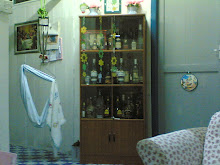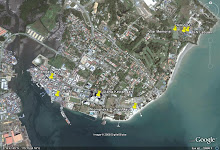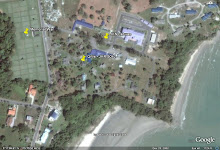
Thialan: Says the Asian diet used to be rich in probiotics, such as the popular Malay delicacy ‘tempe’ that contains friendly lactic acid bacteria, but foods such as these are slowly diminishing as M'sians get more Westernised.
12th June, 2008
A good immune system is inherent in maintaining good health and this is where the microbial population in the intestinal tract plays an important role.
The proper ratio of the good and bad bacteria in the gut flora is essential in keeping the immune system working at optimal level.
With the advent of modern medicine, where antibiotics are seen as the panacea for a host of ailments, the good microbial population is often eliminated and worst still the immune system is not put to test to develop naturally.
L. Thialan, an active proponent of alternative medicine and natural science, noted that mankind has apparently forgotten the role of the good and bad bacteria in helping to boost the body’s immune system.
Importance of boosting the immune system
Thialan, the managing director of Ohira Nutrition Sdn.Bhd, a company in the forefront of research and development of nutritional supplements, is a strong advocate of probiotics or known as the ‘beneficial bacteria’.
Thialan who has analysed the works of Dr Bernard Jensen is highly optimistic of the therapeutic value of probiotics.
He pointed out that an unhealthy lifestyle, poor dietary habits, rampant use of antibiotics, mental stress and pollution often disrupt the balance of good and bad bacteria in the body that eventually contribute to a weak immune system.
The Asian diet, said Thialan, was at one time rich in probiotics, for example ‘tempe’, a popular Malay delicacy that contains friendly lactic acid bacteria. Studies show the TH10 strain of this bacterium is effective against the most potent MRSA (methilcillin resistant Staphylococcus aurues).
But the tempe is slowly diminishing from the diet as Malaysians get more Westernised.
Symptoms like decrease in bone density and mineral absorption, indigestion, constipation, diarrhea, food allergy, migraine and lethargy are also caused by the lack of probiotics in the gut.
And the problem doesn’t stop there. The lack of probiotics also hamper the development of a robust immune system which in turn can lead to immune disorders, allergy and even cancer.
So how are we to boost the function of the immune system?
The role of probiotic
For Thialan, boosting the immune system is all about going back to the basics.
People should be encouraged to take food that is rich in probiotics in their daily diet or through supplements available in the form of capsules, powder and tablets.
In general, probiotics help acidify the colon, normalize bowel movement, eliminate intestinal gas and bloating, improve immune system function, aid vitamin formation, deactivate cancer-causing compounds, and regulate cholesterol and hormone levels.
Certain microbes like the lactic acid bacteria help to stimulate the immune response in the gut and helps in the production of lactase, the enzyme essential for the breakdown of milk and milk products.
But how do we choose the right probiotics?
Choosing the right probiotics
Thialan points out that nowadays there are many probiotic supplements available on the shelves but there are several criteria that one should consider in choosing the right one.
First, they should contain strains proven to be safe and effective. Most probiotics only list the types of bacteria but not the strain. Some of the effective bacteria strains include Enterococcus faecalis TH10, Lactobacillus acidophilus ©, Lactobacillus bulgaricus, Bifidobacterium longum ©, Enterococcus faecalis TH10 © and Streptococcus thermophillus.
Second, they should remain potent throughout the gastrointestinal system; the manufacturers often claim the presence of billions of microorganism per serving or capsule, but their survival rate in the stomach acids is more pertinent than their numbers.
Third, they should be able to stick to the intestinal lining and colonise the gut. Many of the commercial probiotics are centrifuged and freeze-dried and this may have robbed them of their ability to form rods that bind them into short chains and adhere to the intestinal walls.
On the efficacy of probiotics, Thialan says the proof of the pudding is in the eating. He recalled his own experience more than 20 years ago on how probiotics helped to overcome his sinus problem without the need to undergo surgery.
Thialan believes the public must be educated on probiotics and he is happy to impart his knowledge to them. Anyone keen to learn more about probiotics can contact Thialan at support@ohhira2u.com or browse the company’s website at www.ohhira2u.com.
Friday, June 13, 2008
The role of good and bad bacteria
Subscribe to:
Post Comments (Atom)















.jpg)



.jpg)


a.jpg)











.jpg)

.jpg)
.jpg)



















.jpg)
.jpg)

























No comments:
Post a Comment